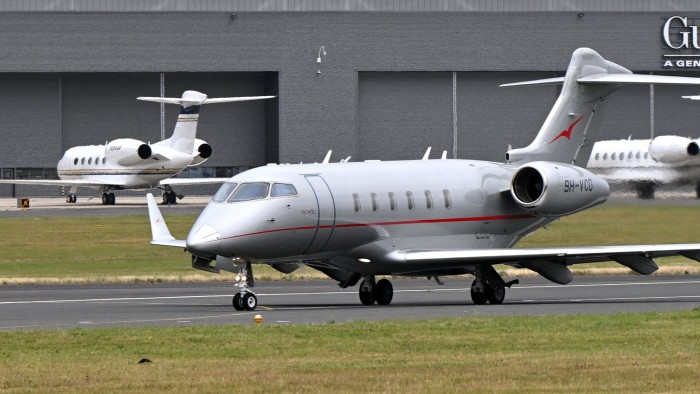Unlock the Editor’s Digest for free
Roula Khalaf, Editor of the FT, selects her favourite stories in this weekly newsletter.
Many employees got their companies to buy them a comfy office chair and a computer stand during the Covid-19 work-from-home era. Chief executives of S&P 500 companies did rather better when it comes to improving their working conditions. Among the high-class benefits for the C-suite were enhanced private jet privileges and paid-for mansions, and they have long outlasted the pandemic.
Proxy adviser Glass Lewis recently studied executive pay filings from the last several years and found that perquisite costs — typically a fraction of overall CEO compensation packages — skyrocketed for big US companies. Between 2019 and 2023, annual perk value for bosses went up more than 30 per cent. The absolute charge is typically a few hundred thousand dollars, though for some bosses — such as Salesforce’s Marc Benioff and Palo Alto Networks’ Nikesh Arora — it can reach into the millions.
The simple way to reward executives is with cheques, bonuses and stock options. Instead, companies are increasingly becoming concierges that provide travel, housing, security and even leisure. The more than $20mn that Mark Zuckerberg got from Meta in 2023 for personal and family security is, by leaps and bounds, the single largest perk awarded to any CEO. Zuckerberg currently owns $223bn worth of Facebook stock, so presumably he could stump up for his own rent-a-cops.
Watchdogs such as the Securities & Exchange Commission are focused chiefly on disclosure rather than the form or amount. In one enforcement action a CEO, Mark Watson of Argo Group, failed to report he was using company money to pay for tickets to the posh Met Gala in New York City.
But shareholders should be wondering if this shadow compensation is justified. That is, why can’t rich CEOs just pay for these goodies, which no one else at the company gets, out of their own multimillion dollar pay packages?
In part, the answer is because American boards and shareholders believe that ostensibly elite managerial talent is worth a king’s ransom. The beleaguered Starbucks hired Brian Niccol as CEO from Chipotle in 2024. He received a private jet allowance for work and personal travel, and an office in California where he lived, far from Starbucks’ Seattle base. This on top of $90mn in sign-on awards and a $28mn annual compensation target.
The risk is that these seemingly minor costs begin to creep up in absolute terms. Shareholders may not notice, since they are tiny relative to the company’s other expenses. In the worst instances, though, they set a poor examples for more ordinary employees and subsidise inefficient behaviour by bosses, such as living far away from headquarters. Bit by bit, home workers are being forced back into the office as conditions normalise. Do not expect CEOs to so easily hand back their pandemic gains.
